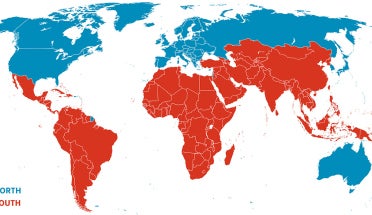
Law Students Research International Child Hosting Programs via Diplomacy Lab
- Apr 3, 2025
A team at The University of Texas at Austin School of Law recently shared findings from a 2024 study undertaken in response to a request by the United States Department of State, which asked for research into international child hosting programs.
Child hosting (sometimes called “orphan hosting”) programs offer temporary respite and care for children from troubled nations, bringing them from abroad to stay with a family in the U.S. for up to two months. The goal is to give the children a break from the trauma of living in often poor and dangerous conditions. It is also a vehicle for introducing hard-to-adopt children to potential adoptive American families.
The investigation was conducted under the umbrella of Diplomacy Lab, a State Department initiative that requests innovative research related to foreign policy challenges. Focusing on specifically identified topics, the department solicits bids from participating schools and chooses a team to conduct the work.
With the selection of Texas Law researchers, the study became the first Diplomacy Lab research project conducted in UT’s Law School. (No State Department funding was provided for the Texas Law project.)
The project was led by Lori Duke, a clinical professor at the Children’s Rights Clinic at Texas Law, which represents abused and neglected children in the dependency system. The research team also included students Katherine Himaya Lewis (’24) and Franchizca Scipio (’24), each then in their third year of law school.
The team’s main finding: Child hosting programs are largely self-regulated. Some of the home countries involved do maintain requirements, such as limiting how many children may be hosted at one time, but regulation is not standardized.
“The lack of regulation surrounding host child selection and host family selection is particularly concerning,” Lewis said. “The students examined this unregulated system from different perspectives, identified risks to both children and families, and offered policy suggestions to the State Department’s Office of Children’s Issues to reduce that risk.”
The team compiled their findings and policy recommendations into a comprehensive 100-page report submitted to the State Department. They shared highlights and policy recommendations with the Adoption Oversight Division in the Office of Children’s Issues during a livestreamed presentation in May 2024.
“On this project specifically, I was able to use the skills I learned at Texas Law to create a finished product that told a compelling story and was appropriate for submission to the U.S. Department of State.” Lewis said.
Contributions of students and faculty through the University’s Diplomacy Lab partnerships make a difference, said Holly Schneider, program officer in UT’s Global Initiatives and Alumni Relations unit at Texas Global.
Diplomacy Lab’s “value lies in the real-world experience it offers students,” said Schneider, enriching pedagogical offerings and yielding outcomes that “inform decisions in actual policy making.”
To learn more about the investigation, read the full story on the School of Law website.



